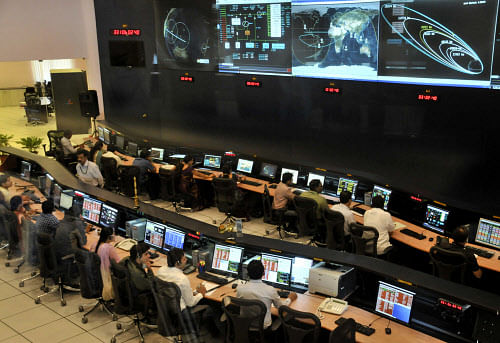
The Indian Space Research Organisation team (Isro) in Antarctica is having “issues” interacting with each other, but its work has not entirely stopped, Isro’s National Remote Sensing Centre (NRSC) Director V K Dadhwal has admitted.
Dadhwal’s statement comes soon after the Ministry of Earth Sciences ordered a probe into the alleged shutdown of Isro activities at the Indian Research Station “Bharathi” in Antarctica.
The Isro station at Antarctica is part of the larger Indian research station Bharathi, which is overseen by the NRSC.
Speaking to Deccan Herald from his Hyderabad office on Saturday, Dadhwal said: “The Isro team is still in Antarctica. Yes, there is an issue. Let the team come back and we will talk to each one of them and work out what has been going on. The National Centre for Antarctic and Ocean Research (NCAOR) will also speak to all members of the team to find out what the matter is. A committee has been set up by the NCAOR to talk to the team.”
When asked whether Isro personnel had stopped work in Antarctica, Dadhwal told Deccan Herald: “Our team is still there. Work has not stopped. I assure you the Isro station is working.” On whether fuel shortage had caused a crisis, Dadhwal said: “I cannot comment on specifics. Let us see what the committee has to say.”
Union Minister for Science and Technology and Earth Sciences Jaipal Reddy had ordered a probe into Isro activity factoring in national security and the status of the mission.
It is believed the probe was ordered after the team leader allegedly ordered for the station’s power supply, which is obtained from diesel generators, to be cut off. A former chairman of Isro, on the condition of anonymity, said: “If shortage of fuel was the issue, why would the Isro station not take stock of fuel two months before it was to get exhausted and make arrangements for additional supply from South Africa? It is the most obvious thing to do. Unless there is some confusion or some issues, such a thing in Antarctica is unheard of. If power is switched off, people inside will freeze. So why was the power ordered to be cut off and why wait for diesel to get over?”
The NSRC director said a new team would replace the existing team. “It is harsh weather in Antarctica. Team members are lonely out there having left their families. There is no transport at this time of the year and we have to wait for the team to arrive.”
The 17-member team is working at a satellite data reception station that receives data from over 20 Indian satellites and relays it to the NSRC Hyderabad. Apart from the station, Isro has established a communication link between Antarctica, Hyderabad and the NCAOR, Goa. The link is required for interaction and transmission of data between Antarctica and the mainland.
Isro’s first ventured out into Antarctica between 1971 and 1973, when an Indian was picked to be part of a Soviet team after an agreement with a Soviet government Centre that had planned an Antarctic visit. But India’s first formal expedition to the icy continent began in 1981, and in 1983, India signed the Antarctic Treaty.